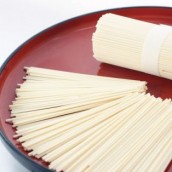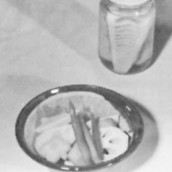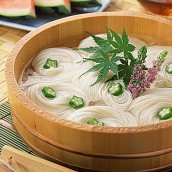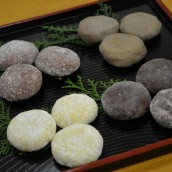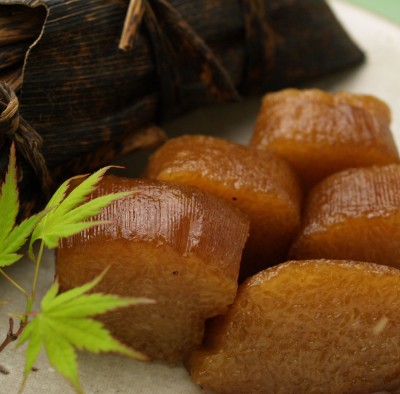
Kagoshima
A traditional delicacy of Kagoshima which is indispensable for Boy's Day.
Akumaki
The origin of Akumaki is unknown however it is said it was food provisions for Satsuma young soldiers that Yoshihiro Shimazu brought during the battle of Sekigahara in 1600. This is a food cooked with ash at each home, and each akumaki comes in different shapes, sizes and colors depending on each home. Akumaki is not cooked at home so much any more today, but it is still an indispensable food around May for people who grown up in Kagoshima.
for [:ja]10(本)人前[:en]10 pieces[:de]10(本)人前[:ru]10(本)人前[:es]10(本)人前[:fr]10(本)人前[:it]10(本)人前[:ko]10(本)人前[:th]10(本)人前[:zh]10(本)人前[:ch]10(本)人前[:] persons
- mochigome1.5kg
- lye18 cups
- Moso bamboo10 leaves
- palm tree1 leave
- 1.
- Make lye with charcoal (you can buy lye too)
- 2.
- Wash mochigome a night before, drain and soak in lye
- 3.
- Take out mochigome from lye and drain. (keep lye for later)
- 4.
- Soak bamboo leaves in water a night before to soften. Tear palm tree leave into strings.
- 5.
- Spread a bamboo leave, and place mochigome and wrap with the leave and tie it with the leave strings at three points.
- 6.
- Place them in a large pot, cover them with the lye and simmer for more than 3 hours. (Add water once while simmering. The rice is ready once it turns brown.)
- 7.
- Eat them with kinako, sugar, brown sugar or something else. It depends on each
Information provided by : 鹿児島県食生活改善推進員連絡協議会/(画像)NPO法人霧島食育研究会


